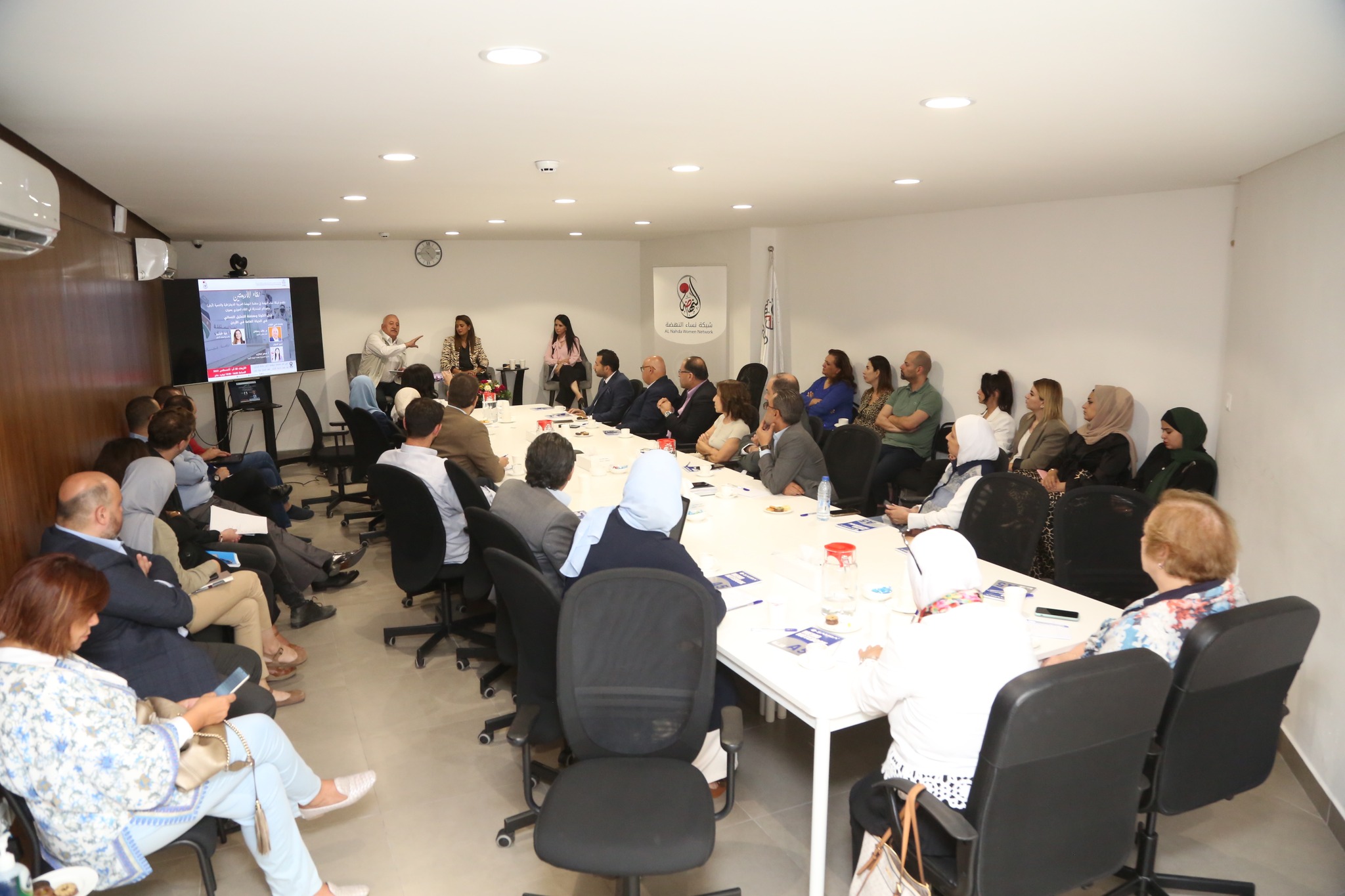While the majority of countries in the region have used the quota system as positive discrimination to allow women’s participation in decision-making positions, and in recognition of the crucial role they can play in the economic, political, and social development of countries, there is a need today for women to access Parliament “through competition, not quotas.”
This requires amending legislation, changing women’s political mindset, educating society about the electoral and political process in general, and moving societal awareness (elites, citizens, cultural and partisan circles, etc.) from “participation to effective partnership”, according to participants in the dialogue meeting on “The quota controversy and the dilemma of women’s empowerment in public life in Jordan”, held by Al-Nahda Women’s Network of the Arab Renaissance for Democracy and Development (ARDD), on Wednesday, August 30, 2023, and moderated by the Executive Director of ARDD, Samar Muhareb..
Muhareb stressed that the political and civic participation of women and youth has attracted ARDD’s attention, especially with regard to the weak representation of women in various leadership decision-making circles, which requires building partnerships between all institutions, strengthening efforts, and expanding opportunities for women, which would primarily be reflected in the well-being of societies, as well as the indexes of poverty, unemployment, and development.
Regarding the situation in Jordan, Muhareb explained -according to a study conducted by ARDD’s Research Department- that the quota system ranks sixth in the Arab world and 129th globally on the Women’s Power Index set by the Council on Foreign Relations, which indicates a challenge in terms of achieving gender equality, while only 9% of women participate in the cabinet, 12% in legislative bodies, and 32% in local government bodies.
In turn, MP Dina al-Bashir stressed the importance of “women’s struggle in society to be able to reach decision-making positions,” noting that she, like other female parliamentarians, faced many problems during her experience in the House of Representatives, especially since she is one of the five youngest members in the House.
Al-Bashir emphasized the need to provide programs based on changing the societal culture in order to find real representatives rather than service-oriented ones, pointing out that most women who want to participate in elections and parties are subjected to societal bullying.
Senate member Eng. Khaled Ramadan was of the opinion that “the quota is positive discrimination in the face of negative discrimination,” saying that the quota system in Jordan does not apply to women only, but also to Bedouins, Circassians, Chechens, and Christians. Moreover, he called on political elites and civil society organizations to promote societal awareness about participation in parliamentary elections, and to establish partnerships between various parties to increase women’s representation in Parliament, considering that politicians in Jordan have ceded their primary role in favor of media and marketing, instead of acting as policymakers.
Ramadan warned that “we must not make the issues of women and youth a bridge to access centers of influence, in light of the fact that we do not have an organized civil society, but rather social or political activists, not professional politicians,” stressing our need for leading institutions, a real constitutional struggle, reformulating active citizenship, and focusing on education and culture.
According to members of Al-Nahda Women’s Network, including the main advisor to Dorrat Al-Manal Foundation for Development and Training, Dr. Sawsan Al-Majali, Manal Al-Wazni, Mona Talfah, and others, there’s a current need for a peaceful democratic struggle, as well as dialogue and national consensus; to increase the representation of women in parliament. There’s also a need to hold periodic meetings between civil society institutions and various parties on the one hand, and the Senate and the House of Representatives on the other, with the importance of changing society’s perception of political and civil participation, so that it does not remain limited to economic and social issues, as well as the need to create a system that promotes women on the parliamentarian and political levels, without setting mathematical equations and conditions that undermine women’s right to equal access to parliamentary work.


